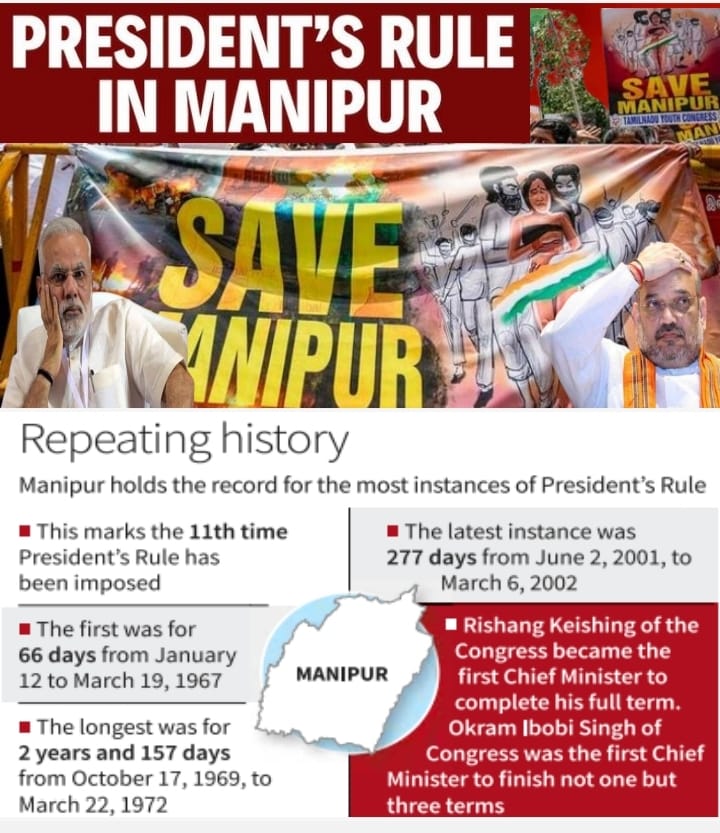Manipur has been experiencing intense ethnic violence since May 2023, primarily between the Meitei and Kuki-Zo communities. The unrest has resulted in over 250 deaths and displacement of thousands. The situation worsened due to continuous clashes, security concerns, and governance failures, leading to growing demands for President’s Rule in the state.
Imposition of President’s Rule
On February 13, 2025, the Union Government imposed President’s Rule in Manipur under Article 356 of the Indian Constitution. This came after Chief Minister N. Biren Singh resigned under pressure. With this, the Governor of Manipur will now administer the state under the guidance of the central government.
Reasons for President’s Rule
1. Ethnic Clashes – The ongoing conflict between Meitei and Kuki-Zo groups led to law and order breakdown.
2. Administrative Failure – The state government struggled to control the violence, with allegations of bias and inefficiency.
3. Security Concerns – Armed groups, civilian casualties, and refugee crises worsened the situation.
4. Political Pressure – Opposition parties and civil society groups demanded central intervention.
Impact of President’s Rule
1. Direct Central Rule – The Governor takes over the administration under the President’s guidance.
2. Security Reinforcement – The Army, Assam Rifles, and central paramilitary forces may play a bigger role in restoring peace.
3. Policy Decisions – No elected government means governance decisions will be taken by bureaucrats and the Centre.
4. Elections Likely – President’s Rule is temporary, and fresh elections may be scheduled once stability is restored.
 Political Reactions
Political Reactions
BJP-led Centre defended the move as necessary for restoring peace.
Opposition parties, including the Congress, criticized the state government for its failure and called for long-term solutions.
Civil society groups expressed mixed reactions, some seeing it as a relief while others fear a prolonged central rule.
Conclusion
President’s Rule in Manipur marks a critical moment in the state’s history. While it aims to restore governance and peace, long-term political and social reconciliation is essential for lasting stability. The focus now shifts to restoring normalcy, rebuilding trust between communities, and holding fresh elections.
By- Unnati Vaishanav